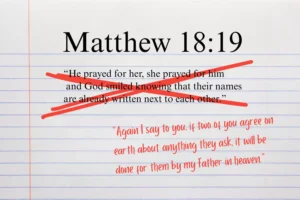After the busy holiday season, January seems quiet. Sure, stores are stocking Valentine’s candy and maybe even some Easter goodies, but overall, our January days tend to revolve around getting back into a routine (or starting new routines). We’re less likely to be thinking about holidays.
But I noticed this year that there are at least two January holidays dedicated to remembering people from the past. About halfway through the month, Martin Luther King Jr. Day reminds us of the sacrifices many people made in the fight for civil rights. Later in January, International Holocaust Remembrance Day points back to victims and survivors of Nazi violence during World War II.
I think it’s fitting that in a month of looking forward, we’ve cemented reminders to look back. But how do we properly observe days like these? And how long should we remember? Chronologically, we’re moving further and further away from these events. Martin Luther King Jr. died over 50 years ago, and the Second World War ended more than 20 years before that. Why is it important to remember?
The past is a teacher
For thousands of years, human beings like you and me have lived, governed, fought, reasoned, hypothesized, and sinned. It’s important to remember times of racial prejudice and Nazi genocide because human sin nature will always be bent toward evil. To prevent tragedies like these from recurring, we should set aside time to remember the human cost of bad ideas. Someone once said that “those who do not learn history are doomed to repeat it.” Perhaps the same is true of forgetting history.
That’s the thing. We are so prone to forgetfulness — not just personally, but collectively. It’s easy to focus on the problems and crises happening right now. There are many to choose from. But when we remember the crises of our grandparents’ and great-grandparents’ lifetimes, we are pulled out of our own problems. We get perspective on how generations before us faced issues that maybe aren’t that different from ours.
The Bible loves to look back
But there are deeper, spiritual reasons to look back at the past. First, God has always called His people to remember. The English Standard Version of the Bible shows over 200 entries for the word “remember.” The book of Psalms carries the most references by far, but Moses was a fan of the idea, too: “Remember the days of old; consider the years of many generations; ask your father, and he will show you, your elders, and they will tell you.”
God’s command is reason enough to remember, but there’s more. When we look at historical events, we have the benefit of hindsight. It’s much easier to see God’s purpose in events long ago than in our own personal drama from last week. Every past crisis and tragedy shows that even in the darkest times, God works in the affairs of men, as many signers of the Declaration of Independence agreed.
We learn most about God from His Word, but He also teaches us about himself through nature and history. As we study the scary times of previous decades and even centuries, we get a glimpse into how God worked then, which gives us hope for how He will work now and in the future. The writer of Hebrews reminds us, “Jesus Christ is the same yesterday and today and forever.” We can bank our faith on the fact that God will walk with us and work in our tragedies and crises, just as He did for generations before us.
Thinking about history
Next time you enjoy a day off because of a holiday commemorating past events, take some time to learn about that time in history. Read a book about it or watch a documentary. Perhaps take Moses’ guidance literally and ask an older relative, friend, or fellow church member about how they saw God work in the big events of earlier decades. Consider taking the time to pray for leaders, veterans, and, if applicable, survivors of that event who may still be alive and remembering their own traumatic experiences.
One day future generations will be remembering events in our lifetimes, looking for evidence of God’s work in man’s darkness. I wonder what they will learn.
Copyright 2023 Lauren Dunn. All rights reserved.











